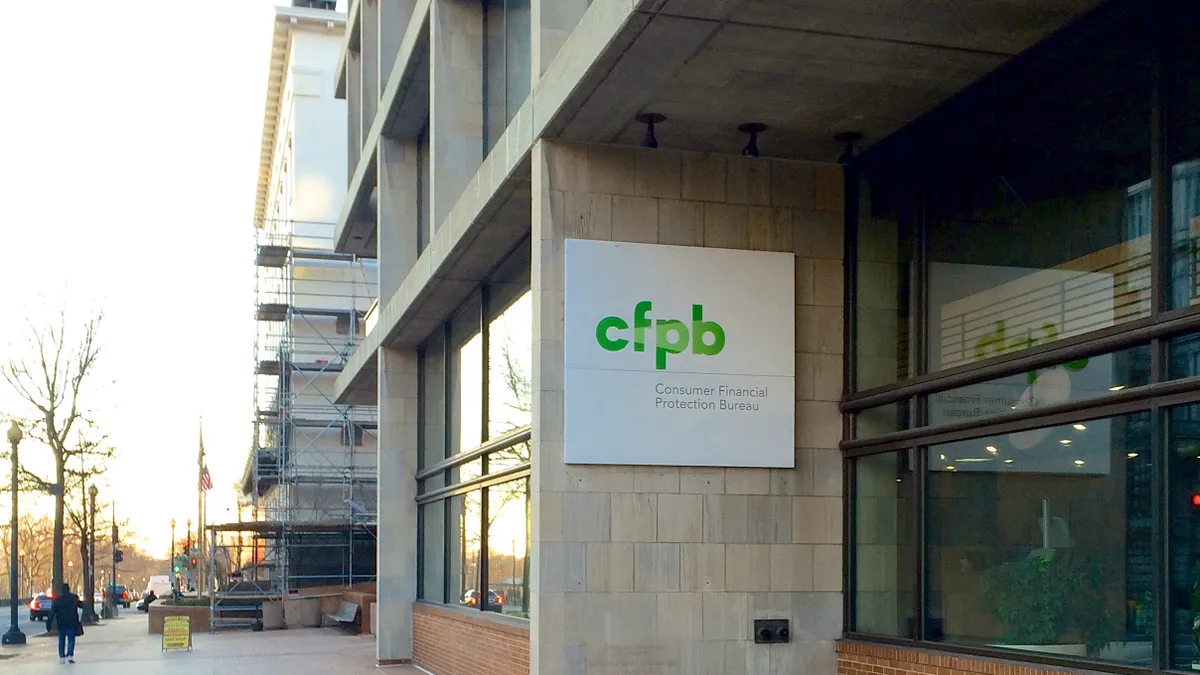At least one buy now, pay later provider believes the Consumer Financial Protection Bureau’s supervision of the space is imminent.
Affirm expects the CFPB “to begin to supervise us in the immediate future,” the company said in its most recent annual report, issued Oct. 20. Affirm noted that supervision will enable the CFPB to “conduct comprehensive and rigorous examinations to assess our compliance with consumer financial protection laws.”
The San Francisco-based company first disclosed that expectation in its annual filing with the Securities and Exchange Commission in August.
For Affirm, supervision by the federal watchdog could result in “investigations, enforcement actions, regulatory fines and mandated changes to our business products, policies and procedures,” the BNPL company said in the annual report.
“The CFPB already serves as one of our regulators today, and we expect them to continue reviewing our business and industry,” an Affirm spokesperson said Monday. “We will continue engaging with the CFPB as we do with all of our regulators.” The spokesperson declined to identify an expectation of timing related to CFPB action.
A spokesperson for the CFPB didn’t immediately respond to a request for comment.
Legislation that surfaced last week during a House hearing also suggests the CFPB may act soon. A House subcommittee has drafted a bill that would require the CFPB and U.S. Government Accountability Office to conduct studies on BNPL use before the bureau could issue any new BNPL-related rules.
The possibility of regulation has loomed over the BNPL industry at least since the CFPB released its BNPL report in September 2022. At the time, the bureau said it was considering rules or “interpretative guidance” to ensure BNPL providers adhere to laws that apply to credit card companies.
Affirm communicates with the CFPB on a regular basis, the company’s President Libor Michalek said during a September interview. Affirm does more longer-term, interest-bearing loans than it does short-term, interest-free installment plans. The former are covered by the Truth in Lending Act, while the latter are not.
“We feel we're very aligned with what the CFPB and regulators are attempting to do in their missions, to ensure that consumers have good, honest experiences,” Michalek said.
Affirm CEO Max Levchin said last month the company feels prepared for more regulatory scrutiny, although there’s a cost to enhanced regulation, in the form of compliance hiring and spending. “At our scale, the eye of the regulator is upon us,” Levchin said.
A spokesperson for Affirm competitor Klarna declined to comment on whether the company expects CFPB supervision to begin in the near future. Spokespeople for other major BNPL players including Block-owned Afterpay, PayPal and Zip didn’t immediately respond to requests for comment.











